Alejandro Figueroa | July 20, 2021 | Car Accidents
When a driver yields the right of way, they allow another driver to merge, turn, or continue in front of the driver’s vehicle.
Common examples of yielding the right of way include:
- Stopping for oncoming traffic at a yield sign
- Allowing a car to turn left in front of you when the driver has the green arrow
- Waiting until oncoming traffic is clear before turning left across opposing traffic lanes
- Merging safely into traffic on the interstate or in multiple lanes of traffic
- Pulling over to allow emergency vehicles to pass
- Stopping at pedestrian crosswalks
- Waiting for a break in traffic to pull out of a parking lot, side road, or driveway
- Obeying traffic signals
Failing to yield the right of way can result in a traffic ticket, fine, and points against your Florida driver’s license. In addition, it could increase your automobile insurance premiums, depending on the traffic offense and your driving history.
Drivers who cause traffic accidents by failing to yield the right of way may be financially liable for damages caused by the collision.
Drivers in Florida are expected to know and understand the laws governing the right of way in various traffic situations. The Florida Uniform Traffic Laws and the Florida Driver’s Handbook explain all instances when drivers must yield the right of way to other drivers.
Causes of Failure to Yield the Right of Way Accidents
Failure to yield the right of way is a common factor in car accidents. According to the Insurance Information Institute, failing to yield the right of way was the third most common factor in fatal traffic accidents in 2019.
There were 158,688 traffic accidents in Florida during 2019 related to failing to yield the right of way. Of these, the FLHSMV reported 428 fatal car accidents and 3,518 incapacitating car wrecks.
Human error is the most common cause of right-of-way accidents. Factors that contribute to the cause of right of way crashes include:
- Not understanding the laws related to right of way
- Distracted driving, including texting while driving
- Speeding and reckless driving
- Driving under the influence of alcohol or drugs
- Fatigue or drowsy driving
- Aggressive driving and road rage
Additionally, improperly marked intersections and lack of road signs can also contribute to a right of way accident at an intersection. For example, a malfunctioning traffic signal might give two drivers the right of way simultaneously. In addition, a yield sign that fell over could contribute to an accident.
Accidents Involving Failure to Yield the Right of Way
In most cases, drivers get away with failing to yield the right of way each day. So unless you cause a traffic accident or a police officer witnesses your traffic offense, the only negative consequence you might experience is an angry driver shouting at you when you cut him off.
However, if you cause a car accident because you failed to yield the right of way, you could be responsible for the accident victim’s damages.
Under Florida’s no-fault insurance laws, a driver could be held liable for damages caused by a car wreck if the victim sustains serious injuries.
Serious injuries are defined by statute as:
- Death
- Scarring or disfigurement that is permanent and significant
- Loss of an important bodily function that is permanent and significant
- Injuries that are permanent within a reasonable degree of medical probability
If a person sustains any of the above injuries, the no-fault laws do not apply. The individual may proceed with a claim for damages against the driver who caused the car accident.
What Damages Can I Recover for a Right of Way Crash?
If another driver caused your right of way accident and you sustained serious injuries, you can pursue a claim against the driver for non-economic and economic damages, including:
- The medical expenses associated with diagnosing and treating your injuries
- The cost of assistance with personal care and household chores
- Your pain and suffering, including mental, emotional, and physical suffering
- Permanent impairments, disfigurement, and disability
- Past, present, and future loss of income, including reductions in earning potential
- Psychological injuries, such as PTSD and depression
- Loss of enjoyment of life and reduced quality of life
You must be able to prove that the other driver caused the crash, the crash caused your injuries, and you sustained damages. The value of your damages depends on your injuries, economic damages, and other factors.
If you are partially at fault for a failure to yield the right of way accident, the value of your personal injury case decreases. Florida’s comparative negligence laws permit the court to reduce your compensation by the percentage of fault assigned to you for the cause of the crash.
You are under a deadline for filing a claim related to car accidents. Seek prompt legal advice to avoid running out of time to file a claim.
Contact Our Car Accident Law Firm in Tampa, FL
If you’ve been injured in an accident in Tampa, FL, and need legal help, contact our Tampa car accident lawyers at Catania & Catania Injury Lawyers to schedule a free consultation.
Catania & Catania Injury Lawyers
Bank of America Plaza
101 E Kennedy Blvd #2400
Tampa, FL 33602
(813) 222-8656
We also provide legal assistance throughout the Tampa Bay Area including Clearwater, St. Petersburg, Sarasota, and Bradenton.

